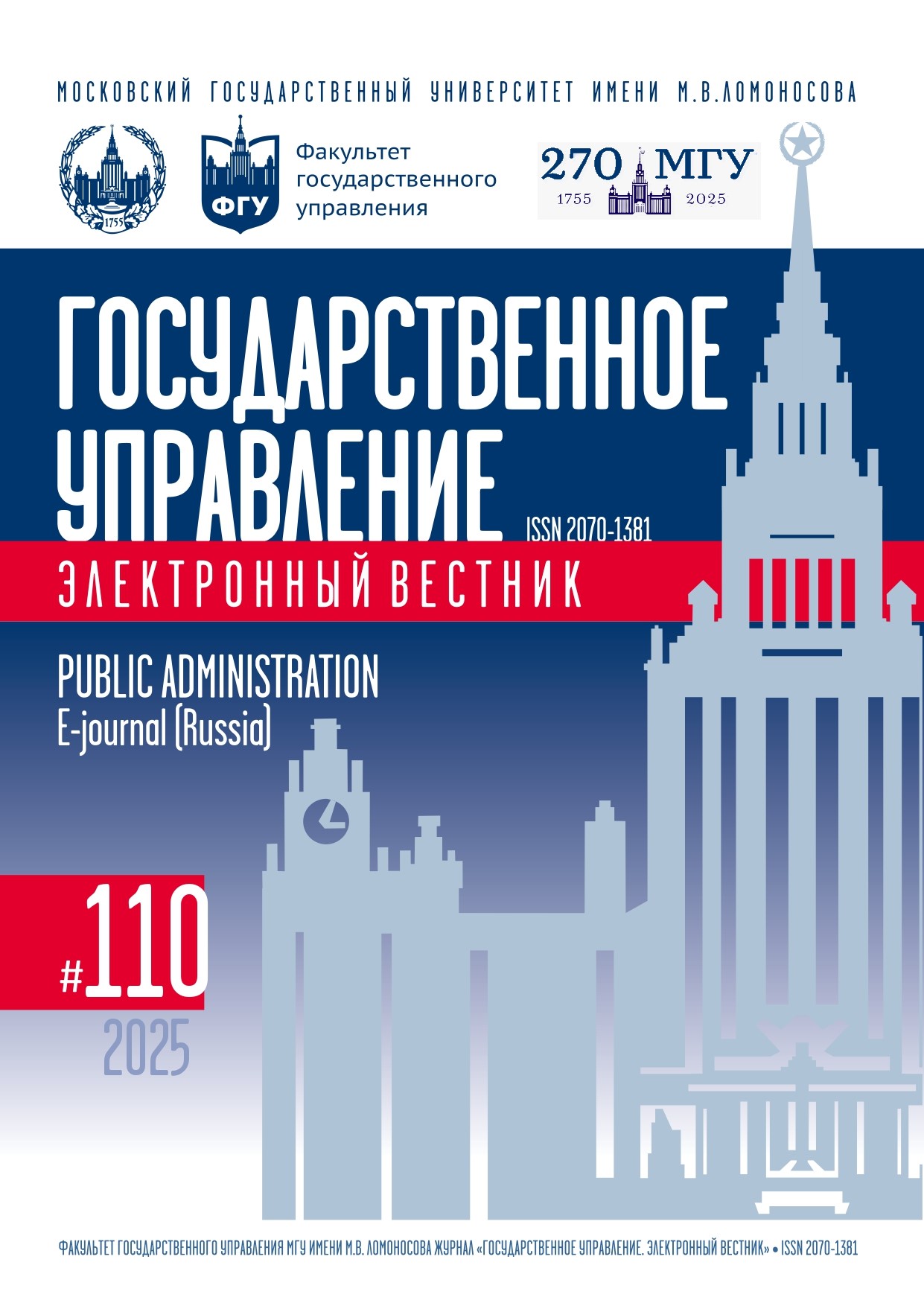Artificial Intelligence in Ensuring Sustainable Economic Development
DOI:
https://doi.org/10.55959/MSU2070-1381-110-2025-179-194Keywords:
Artificial intelligence, Big Data, Industry 4.0, labour productivity, input-output model, economic cybernetics.Abstract
The article examines the primary directions of artificial intelligence (AI) development and application in domestic and international business, as well as in public administration. The study’s relevance stems from the need to establish principles for AI development in the economy to enhance the efficiency of public production. The aim is to define principles for AI development to improve the effectiveness of managerial decision-making. A contradiction is identified between the active implementation of digital technologies and AI in the economy and the exacerbation of socio-economic challenges. The study establishes a connection between the main directions of AI development and application in the Russian Federation and Klaus Schwab’s concept of the Fourth Industrial Revolution. It analyzes discrepancies between the proclaimed revolutionary nature of current transformations and the stagnation of key indicators, particularly labor productivity growth, which are typically signals of an industrial revolution. The theoretical and methodological foundations of the Fourth Industrial Revolution concept, guiding states and businesses, are shown to hinder effective digital transformation aimed at improving economic efficiency. The limitations of the Industry4.0 framework obstruct the recognition of the need for dynamic economic-mathematical models (EMMs), reducing economic development to technical digital transformation measures without linking them to the economic efficiency of digitalization costs. This approach overlooks the need for tools to manage economic development, particularly in enhancing labor productivity, selecting efficient technologies, and ultimately increasing profitability. As a result, an alternative scenario is proposed for the development and use of cybernetic AI in economic management to ensure proportional economic development, addressing strategic challenges for the state and businesses.
References
Ведута Е.Н. На грани нового технологического уклада: к вопросу о разумном управлении инновациями // Проблемы национальной стратегии. 2023. № 6(81). С. 96–109. DOI: 10.52311/2079-3359_2023_6_96
Ведута Н.И. Экономическая кибернетика: Очерки по вопросам теории. Минск: Наука и техника, 1971.
Ерохина Е.В., Соцкова Е.А. Перспективы развития логистики и транспорта в процессе цифровизации // StudNet. 2022. № 6. С. 6712–6721.
Маркс К., Энгельс Ф. Сочинения: В 30 т. Т. 23. М.: Госполитиздат, 1960.
Мыльник В.В., Мыльник А.В. Роботизация промышленного производства на базе Искусственного интеллекта // Организатор производства. 2014. № 3(62). С. 5–10.
Шваб К. Четвертая промышленная революция. М: «Эксмо», 2021.
Acemoglu D. The Simple Macroeconomics on AI // NBER Working Paper 32487. 2024. DOI: 10.3386/w32487
Brynjolfsson E., Li D., Raymond L. Generative AI at Work // NBER Working Paper 31161. 2023. DOI: 10.3386/w31161
Global Productivity: Trends, Drivers, and Policies / ed. by A. Dieppe. Washington, DC: World Bank Group, 2021.
Hassani H., MacFeely S. Driving Excellence in Official Statistics: Unleashing the Potential of Comprehensive Digital Data Governance // Big Data and Cognitive Computing. 2023. Vol. 7. Is. 3. DOI: 10.3390/bdcc7030134
Moll I. The Myth of the Fourth Industrial Revolution // Theoria. 2021. Vol. 68. Is. 167. P. 1–38. DOI: 10.3167/th.2021.6816701
Downloads
Published
Similar Articles
- Mikhail S. Vagin, Elena S. Palkina, Economic and Mathematical Model for Assessing Synergetic Effect of Lean Production and Digitalization Joint Implementation on Industrial Enterprise , Public Administration. E-journal (Russia): No. 112 (2025)
- Ilya M. Kuznechenko, Risks of Decision-Making Organization and Implementation Based on Big Data Analytics and Artificial Intelligence , Public Administration. E-journal (Russia): No. 104 (2024)
- Ilia S. Balakshin, Marketplace Trends and Industry Expertise in Russia , Public Administration. E-journal (Russia): No. 109 (2025)
- Raisa N. Shpakova, Dmitriy I. Gorodetskiy, Prospects of Using Artificial Intelligence Technologies to Solve Regional Strategic Planning Problems , Public Administration. E-journal (Russia): No. 112 (2025)
- Yuriy Yu. Petrunin, Collisions of Methodology and Epistemology in Data Science , Public Administration. E-journal (Russia): No. 107 (2024)
- Maria A. Yudina, Digital Labour Control — Challenge of Modern Time , Public Administration. E-journal (Russia): No. 92 (2022)
- Andrey E. Orlov, Vitaly K. Chaadaev, Advanced Development of Healthcare Based on Digital Transformation , Public Administration. E-journal (Russia): No. 113 (2025)
- Zhang Jianhua, Innovation Research on Digital Transformation of Manufacturing Industry in China and Russia in the Digital Economy Era , Public Administration. E-journal (Russia): No. 110 (2025)
- Gulnaz R. Yunusova, Human Capital in the Development of Region’s Economy: High-Quality Higher Education as Investment in Human Capital , Public Administration. E-journal (Russia): No. 88 (2021)
- Равшан Сиддикович Шокиров , Bakhtiyor T. Ismoilov, Some Issues of Agricultural Production Efficiency in the Sughd Region of the Republic of Tajikistan , Public Administration. E-journal (Russia): No. 114 (2026)
You may also start an advanced similarity search for this article.




